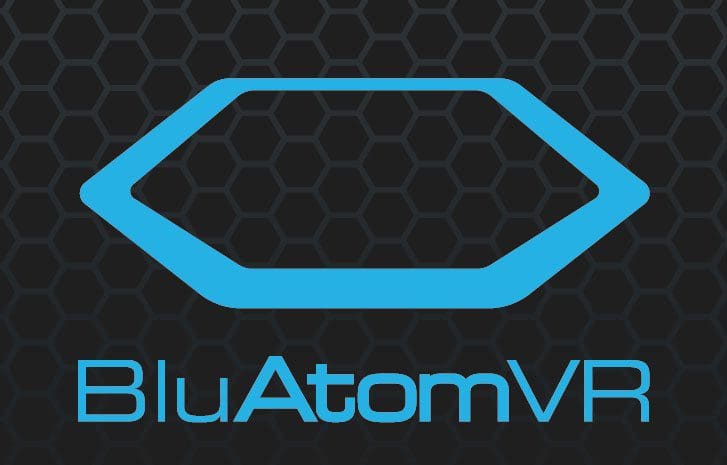Join us to listen to Michael Rotgin of Shelter Capital Partners speak about Shelter's investment thesis, current investment climate, startup advice and more. Company founders will have the opportunity to ask the investor questions at the end of the webinar.
Investor 360: Monthly Investor Roundtable Interview
Featuring Michael Rotgin of Shelter Capital
Wednesday, October 21st, 2020
12:00 - 1:15 pm
Michael Rotgin is a Partner at Shelter Capital focusing on venture capital investments.
Prior to joining Shelter Capital, Mr. Rotgin was a principal at Rolling Oaks Capital. Before joining Rolling Oaks, Mr. Rotgin practiced corporate law in New York and Washington, D.C. Michael has worked for several members of Congress, was a staff member to the United States Senate Committee on Banking, Housing and Urban Affairs and served as a team member of the economics cluster for a United States Presidential transition team.
He has served on the boards of directors of, and in advisory roles to, numerous companies, investment firms, and non-profit organizations. In his various capacities, Mr. Rotgin has assisted many developing and established companies in formulating and executing all types of business strategies in the areas of corporate operations, financial planning, executive recruitment, market development, corporate valuations, securing funds, mergers and acquisitions, and public and private offerings.
Mr. Rotgin has been an invited speaker and participant in venture capital industry symposia and has been a judge for university business plan competitions. Mr. Rotgin received a Bachelor of Science in economics with a concentration in finance from the Wharton School of the University of Pennsylvania, a Bachelor of Arts in history from the College of Arts and Sciences of the University of Pennsylvania, and a Juris Doctor from Georgetown University Law Center.
Shelter Capital Partners is a Southern California based private investment fund, focused on investments in technology and technology-enabled companies at all stages of development, principally in the education, workforce, healthcare and media industries. We also invest in other areas where market or technological changes are creating opportunities for new industry leaders.
About the Organizer of Investor 360
Stubbs Alderton & Markiles, LLP is a business law firm with robust corporate, public securities, mergers and acquisitions, entertainment, intellectual property, brand protection and business litigation practice groups focusing on the representation of, among others, venture backed emerging growth companies, middle market public companies, large technology companies, entertainment and digital media companies, investors, venture capital funds, investment bankers and underwriters. The firm’s clients represent the full spectrum of Southern California business with a concentration in the technology, entertainment, videogame, apparel and medical device sectors. Our mission is to provide technically excellent legal services in a consistent, highly-responsive and service-oriented manner with an entrepreneurial and practical business perspective. These principles are the hallmarks of our Firm.
Register here for Investor 360: Monthly Investor Roundtable Interviews featuring Michael Rotgin of Shelter Capital

SA&M Client InteliGlas Featured in LA Business Journal “InteliGlas Uses AI Program to Save Energy, Cut Costs.”
“There are a lot of companies out there that put sensors in the building and grab data ... which is half the solution,” Martin said. “The rest of the solution is our artificial intelligence, which we named Ripley, and Ripley takes immediate action.”
Ripley, for example, can scan through 40 years of weather data and adjust air conditioning in buildings based on weather patterns.
If a day is expected to be extremely hot, Ripley might start cooling the building at night instead of letting it get too warm, which would force the AC to work overtime in the morning. This approach can help users save on energy costs.
To read the full article in LABJ, click here.
About InteliGlas:
InteliGlas Corporation, represented by SA&M Partner Kevin DeBré, is an American proptech company based in Pasadena, California. InteliGlas was launched in 2018 to develop a commercial real estate autopilot for office buildings. This self-learning IoT platform integrates with virtually any preexisting building management system software.
RipleyAI - InteliGlas, a hive-mind multi-building learning system - combines the knowledge gained from the entire install base applying it to the benefit of all of the InteliGlas customer properties. They have achieved up to 65% energy savings, which is a significant achievement in the quest to lower overhead, and also because, according to the US Department of Energy, office buildings consume 73% of the US electrical energy output and produce a resulting 40% of the nation's carbon footprint.
Making payroll is one of the most stressful issues on every business owner’s mind, and thankfully, the Paycheck Protection Program (PPP) section of the CARES Act provides significant aid to provide some financial relief. The final PPP loan application is now available here.
Who Can Apply? According to the Dept of Treasury’s Information Sheet, all businesses with 500 or fewer employees can apply. Businesses in certain industries can have more than 500 employees if they meet applicable SBA employee-based size standards. Business types that qualify for PPP loans include independent contractors, LLCs, S corporations, C corporations, sole proprietorships, as well as other types of businesses including certain nonprofits, veterans’ organizations, and tribal business concerns. Businesses who have received Economic Injury Disaster Loans (EIDLs) through the SBA between January 31, 2020 and April 3, 2020 are not prohibited from obtaining a PPP loan so long as the EIDL was executed for purposes other than the permitted uses of a PPP (see below for discussion of PPP permitted uses).
The SBA’s affiliation standards have been waived for this Program for companies that are (a) in the hotel or food services industries; (b) franchises in the SBA's Franchise Directory; and (c) receiving financial assistance from small-business investment companies licensed by the SBA. The affiliation standards have been the source of much confusion in the venture-backed startup community; and we explore those considerations in more detail here and will be monitoring for expected new guidance in that area and updating as that becomes available.
What Do I Need to Do to Apply? A business owner must apply through an approved SBA 7(a) Lender, or through any federally insured depository institution, federally insured credit union, and Farm Credit System institution that is participating. Applications are open as of April 3, 2020 for small businesses and sole proprietors. Independent contractors can begin the application process as of April 10, 2020. All applications must be submitted to an approved lender by June 30, 2020.
Applicants will need to certify that the business is suffering from economic hardship due to the current COVID-19. In addition to the certification in good faith that the funds will be used to maintain payroll and make mortgage, lease or utility payments, the applicant will need to provide:
How Much Can You Apply For? The amount of the loan is for up to 2.5 times a business’s average monthly payroll costs from the last year plus any outstanding amounts owed on an EIDL executed between January 31, 2020 and April 3, 2020, if any, and less any emergency advance amounts obtained through the EIDL program, if any. Note, this amount cannot exceed $10 million. If you are a seasonal or new business, you will use different applicable time periods for your calculation. Individual employee payroll costs are capped at $100,000 annualized, so anything above that is not considered for determining average payroll costs.
What Are the Permitted Uses of a PPP? A PPP loan can be used for “payroll costs” and other specific operating expenses.
Payroll costs include salary, wages, commissions, payment of vacation, sick, parental/family/medical leave, payment of retirement contributions, group health coverage premiums and state and local taxes assessed on payroll. Payroll costs do not include Federal Payroll Tax, compensation paid to employees in excess of $100,000, or compensation paid to employees outside the U.S.
In addition to payroll costs, PPP loans can be used to cover interest on mortgage obligations, rent, and utilities that were in use before February 15, 2020, and interest on other debt obligations incurred before February 15, 2020.
Loan Terms. PPP loans will be executed at an interest rate of 1% with a maturity date of two years.
When Do I Have to Pay it Back? A business’s loan repayment term is two years, with the first 6 months of payments deferred with interest accruing during deferment. There is no pre-payment penalty if paid back within that two-year period.
Is the Loan Forgivable? A business owner is eligible for loan forgiveness for the amounts they spend over the eight weeks after receiving the loan disbursement on the qualifying expenses named above (aside from interest on debt obligations incurred before February 15, 2020), provided that at least 75% of the forgiven amount must have been used for payroll costs.
If the number of full-time employees is reduced over the eight weeks or if the salary or wages of employees who earned $100,000 or less in 2019 are reduced by 25% or more, then the amount of the loan eligible for forgiveness will be reduced. However, depending on the timing of any such workforce or salary/wage reductions, reduced loan forgiveness can be avoided if the reductions are undone by June 30, 2020.
The lending bank will determine a business’s eligibility for loan forgiveness based on the criteria mentioned and has 60 days to render a decision.
Can I Still Qualify if I Already Have an SBA Loan? A business owner can have more than one SBA loan as long as the total combined amount of the loans does not exceed the maximum amount set by the SBA, and in the case of EIDL and PPP loans, a borrower cannot take out both types of loans unless they are for different purposes. EIDL loans executed before a PPP loan can be rolled into a PPP loan. In other words, the principal of an EIDL could later become part of a PPP loan, likely resulting in lower interest rates.
What are the similarities and differences between PPP loans and EIDL? Can I get both? As mentioned, you can receive both loans as long as the amount doesn’t exceed the maximum amount allowed by the SBA, and the proceeds are used for different things. EIDL can be used for payroll, paid sick leave, costs incurred due to supply chain disruption, rent or mortgage payments, and repayment of amounts owed that cannot be paid due to loss of revenue from a disaster’s (i.e. COVID-19) impact. Further, EIDL applicants can receive up to a $10,000 emergency advance, which does not have to be repaid even if the loan application is later denied but will reduce the principal of a PPP loan if such applicant subsequently executes one.
As addressed above, PPP can be used for payroll costs, group health care benefits, mortgage interest costs, rent, utilities and interest on debt incurred before February 15, 2020. Because the PPP is forgivable in certain cases, and forgiveness is tied to usage of the PPP loan on payroll specifically, borrowers should carefully evaluate which loan to use for which expenses where an expense is eligible to be paid by either type of loan. We have provided a useful flow chart, available at: PPE: EIDL Comparison Chart.
Authors:
Heidi Hubbeling
Garett Hill
Caroline Cherkassky
Greg Akselrud
For more information on PPP, EIDL and other SBA benefits, please contact us at

Small Business Loans – The CARES Act allocates up to $350 billion in emergency loans for small businesses with fewer than 500 employees (including sole proprietors, independent contractors and the self-employed) affected by COVID-19. These loans can be for up to $10 million and will be available through June 30, 2020. Proceeds from these loans may only be used on payroll and compensation costs, interest on debt obligations incurred prior to February 15, 2020, utilities, and/or rent payments. These loans will be guaranteed by the Small Business Administration and do not require any fee, collateral or personal guarantees from borrowers. Moreover, so long as these loans are used for the permitted purposes as previously stated, they will largely be forgiven (subject to any employee or wage reductions).
Click here for more info on terms and eligibility on these small business loans.
The CARES Act also expands the current Economic Injury Disaster Loan (“EIDL”) loan program through December 31, 2020. The Act not only increases the categories of businesses eligible for the EIDL program, but it also eliminates certain requirements of the current program, such as personal guarantees on loans for $200,000 or less, the inability to find credit elsewhere, and that businesses be operational for 1 year prior to applying. EIDL applicants can also be approved solely on their credit score, as opposed to tax returns, and will be eligible for a fully forgivable $10,000 emergency advance that can be received within 3 days.
To learn more about the changes to the EIDL program, click here.
Severely Distressed Sectors – The CARES Act, specifically, the Coronavirus Economic Stabilization Act (“CESA”), authorizes $500 billion for loans, loan guarantees, and other investments in support of eligible businesses. CESA earmarks $25 billion for passenger air carriers; $4 billion for cargo air carriers; and $17 billion for businesses that work in national security. The remaining $454 billion (and any unused amounts in the above categories) are to be used for the benefit of businesses, States and municipalities.
Specifically, these funds will go towards purchasing obligations or other interests directly from issuers of such obligations or other interests; purchasing obligations or other interests in secondary markets or otherwise; or making loans, including loans or other advances secured by collateral. Note, loans executed under CESA are not forgivable.
To learn more about terms and eligibility, click here.
Unemployment Insurance – The CARES Act Section, Relief for Workers Affected by Coronavirus Act (“RWACA”), provides funding for unemployment compensation (“UC”) to workers adversely impacted by COVID-19. RWACA extends the availability of UC to those workers who are not otherwise covered by State UC laws or that have exhausted State UC benefits.
Relief for Individuals, Families and Businesses –
Individuals and Families: Individual payments of $1,200 for individuals and $2,400 for couples. The payments are reduced for individuals with incomes over $75,000 (or $150,000 for couples) and provides an additional $500 per child. The payments are eliminated for those with an income over $99,000 ($198,000 for couples).
Businesses: Employers, including tax-exempt organizations but not governmental entities – will have the option to receive a refundable payroll tax credit equal to 50% of the first $10,000 in wages per employee (including certain health plan expenses).
For more information regarding eligibility, click here.
The U.S. Senate Committee on Small Business & Entrepreneurship has published a Guide to the CARES Act https://www.sbc.senate.gov/public/index.cfm/guide-to-the-cares-act
Small Business Owner's Guide to the CARES Act
We are actively monitoring the CARES Act and other COVID-19 legal issues that impact your business. For more information on issues or additional resources that can aid you, please contact us at .

To read the full press release on visit here.
About FitTrace™
FitTrace™ is a software company based in Los Angeles, CA that provides cloud based body composition analytics solutions for the sports performance and metabolic health industry. The FitTraceTM body composition software app allows users to store, access, compare, and analyze body composition results on the cloud for anytime, anywhere access and enable better health monitoring by sports performance professionals and athletes.
Learn more at: www.fittrace.com

In 2012 Stubbs Alderton & Markiles launched the first-of-its- kind Preccelerator® Program to provide select start-ups with co-working space, mentorship, sophisticated legal services, curriculum and access to a strategic perks portfolio with the objective of helping grow a founder’s idea from business concept to a funded company. Over the past five years, 37 companies have graduated the Program, of which 24 have received funding totaling over $11.2M.
Louis Wharton, President of the Preccelerator states, “Class 9 is representative of the diverse Southern California tech ecosystem, showcasing fintech, e-commerce and social connectivity. We’re thrilled to partner with these founding teams as they accelerate development and deployment of their market solutions.”
Preccelerator® Program Class 9 companies include:



For more information about the Preccelerator® Program, visit www.preccelerator.com.
About Stubbs Alderton & Markiles, LLP
Stubbs Alderton & Markiles, LLP is a Southern California-based business law firm with robust corporate, public securities, mergers and acquisitions, entertainment, intellectual property, brand protection and business litigation practice groups focusing on the representation of, among others, venture- backed emerging growth companies, middle market public companies, large technology companies, entertainment and digital media companies, investors, venture capital funds, investment bankers and underwriters. The firm’s clients represent a broad range of industries with a concentration in the technology, entertainment, video game, apparel and medical device sectors. The firm’s mission is to provide technically excellent legal services in a consistent, highly-responsive and service-oriented manner with an entrepreneurial and practical business perspective. These principles are the hallmarks of the firm. For more information, visit https://stubbsalderton.com.
About the Preccelerator® Program
The Preccelerator is a novel platform offered to select start-up companies out of the Stubbs Alderton & Markiles, LLP Santa Monica office that provides interim office space, sophisticated legal services, education, networking, mentorship and $350,000 in usable perks from Google Cloud for Startups, Amazon Web Services, and HubSpot among others, with the objective of helping grow a founder’s idea from business concept to funded startup. The program also retains more than 50 active strategic mentors providing free office hours and discounted services, and provides over 50-plus educational workshops and networking events each year. The Program expanded in 2017 to accept a greater number of companies in more formalized classes, depending upon where the companies are in their evolutionary growth, expand benefits to accepted companies, and will look to make strategic investments backed by strategic angel investors. To apply to the Preccelerator, visit www.preccelerator.com/application.
Contact:
Heidi Hubbeling
Chief Operating Officer, Preccelerator ® Program
310-746-9803

Stubbs Alderton & Markiles is the title sponsor for 2018 for Built in LA's annual "Top 50 Startups to Watch" list. To check out the full list from Built in LA, visit here.
For more information on Stubbs Alderton & Markile's practices that can assist your company along its evolutionary path - from startup, to growth to liquidity - contact Heidi Hubbeling at .
Los Angeles, CA, January 16, 2018 (Newswire.com) - Stubbs Alderton & Markiles, LLP, Southern California’s leading business law firm, has announced that Dan Rozansky has joined the firm as a partner in its Sherman Oaks office. Mr. Rozansky will join the Business Litigation practice group.
“Dan is a fantastic addition to our firm” commented Scott Alderton, Managing Partner. “Not only does he augment our litigation practice at a very senior level, which is the fastest growing segment of our firm, he also brings a synergy to our entertainment and digital media practices, which are at the core of our technology expertise. Dan would be a great asset to any firm in the country, and we feel very fortunate that Dan chose to join Stubbs Alderton & Markiles.”
Mr. Rozansky concentrates his litigation practice on entertainment, privacy, First Amendment and complex business and real estate disputes. Recognized as an industry leader, Dan has been listed as a top entertainment and media litigator in Chambers USA (2011-2016). In 2013, 2014, and 2016, he as featured in Variety’s “Legal Impact Report,” which names the top attorneys who are making a significant impact in the entertainment industry. Prior to joining Stubbs Alderton & Markiles, he worked at Jenner & Block’s Los Angeles office.
Dan Rozansky stated, “I am thrilled to be joining the firm. It is rare to find a business law firm of this size with such high quality corporate lawyers and litigators under the same roof. I chose Stubbs Alderton because its technology focus and deep bench of talented attorneys will allow me to continue delivering excellence to my clients.”
To read Dan Rozansky’s full bio, click here.
To view the full press release, visit here.
To view the story on the SFV Business Journal, visit here.
About the Stubbs Alderton & Markiles Business Litigation Practice
The Firm’s business litigators have significant depth and breadth of resources and a detailed knowledge of clients’ industries and business concerns. As trusted counselors to middle market businesses, and particularly early stage, growth companies and entrepreneurs, we understand that how a company or entrepreneur handles dispute risk oftentimes is the difference between business success and failure. For more information about the Business Litigation practice at Stubbs Alderton, click here.
About Stubbs Alderton & Markiles, LLP
Stubbs Alderton & Markiles, LLP is a business law firm with robust corporate, public securities, mergers and acquisitions, intellectual property and business litigation practice groups focusing on the representation of venture backed emerging growth companies, middle market public companies, large technology and Internet companies, entertainment, video games and digital media companies, investors, venture capital funds, investment bankers and underwriters. The firm’s clients represent the full spectrum of Southern California business with a concentration in the technology, entertainment, video games, apparel, consumer electronics, and medical device sectors. The firm’s mission is to provide technically excellent legal services in a consistent, highly-responsive and service-oriented manner with an entrepreneurial and practical business perspective. These principles are the hallmarks of the firm. For more information, please visit www.stubbalderton.com.
Contact:
Heidi Hubbeling
Stubbs Alderton & Markiles, LLP
(310) 746-9803
LOS ANGELES, Dec. 12, 2017 (NEWSWIRE) – Stubbs Alderton & Markiles, LLP announced today that it represented Platinum Equity in its sale of Keen Transport to Wallenius Wilhelmsen Logistics ASA (WWL). Financial terms of the transaction were not disclosed.
Keen Transport is a national provider of heavy-haul logistics and transportation services for the construction, mining and agriculture equipment markets. WWL, based in Oslo, Norway, is a global logistics operator serving the manufacturing industry with a special focus on vehicles, mining and construction equipment, and machinery. Founded in 1995 by Tom Gores, Platinum Equity is a global investment firm with $13 billion of assets under management and a portfolio of approximately 30 operating companies that serve customers around the world. The firm is currently investing from Platinum Equity Capital Partners IV, a $6.5 billion global buyout fund.
To view the full press release, click here.
ABOUT STUBBS ALDERTON & MARKILES, LLP
Stubbs Alderton & Markiles, LLP is a business law firm with robust corporate, public securities, mergers and acquisitions, entertainment, intellectual property, brand protection and business litigation practice groups focusing on the representation of, among others, venture-backed emerging growth companies, middle-market public companies, large technology companies, entertainment, and digital media companies, investors, venture capital funds, investment bankers and underwriters. Stubbs Alderton’s clients represent the full spectrum of Southern California business with a concentration in the technology, entertainment, videogame, apparel, and medical device sectors. Our mission is to provide technically excellent legal services in a consistent, highly-responsive and service-oriented manner with an entrepreneurial and practical business perspective. These principles are the hallmarks of our Firm.
For more information about the Mergers & Acquisitions practice at Stubbs Alderton & Markiles, contact Scott Galer at
Press Contact:
Heidi Hubbeling
Director of Marketing
 By December 31, 2017, any online service provider that has registered an agent with the U.S. Copyright Office through the paper-based registration system must submit a new registration using the new electronic system to preserve safe harbor protection under the Digital Millennium Copyright Act (“DMCA”).
By December 31, 2017, any online service provider that has registered an agent with the U.S. Copyright Office through the paper-based registration system must submit a new registration using the new electronic system to preserve safe harbor protection under the Digital Millennium Copyright Act (“DMCA”).
The DMCA, among other things, provides a safe harbor for online service providers from copyright infringement liability resulting from content posted on their websites or services by users. To qualify for DMCA safe harbor protection, online service providers must designate an agent to receive notifications of alleged copyright infringement by registering with the Copyright Office and each service provider must list their agent’s contact information on their website.
The Copyright Office’s paper-based registration system has been replaced by an online registration system. All online service providers seeking DMCA safe harbor protection must now register agents using the new electronic registration system. This applies to online service providers that have already designated DMCA agents using the paper-based system.
Online service providers that previously designated a DMCA agent using the paper-based system must resubmit their designations through the new electronic system before the December 31 deadline and renew their designations using this system at least every three years. Failure to register electronically by the end of the year will result in the expiration of existing designations and the loss of DMCA safe harbor protection.
What should online service providers do? All online service providers should submit a new DMCA agent designation using the online registration on the DMCA website by December 31, 2017. The fee for filing, amending or renewing a designation through the online system is $6.00.
How Stubbs Alderton & Markiles, LLP can help. We are a full-service law firm with expertise in intellectual property and technology law. We can help register your DMCA agent designation with the Copyright Office using the new electronic system.
For more information about this or other Intellectual Property issues, contact SAM Partner Kevin DeBré at
[vc_row type="in_container" full_screen_row_position="middle" scene_position="center" text_color="dark" text_align="left" overlay_strength="0.3" shape_divider_position="bottom"][vc_column column_padding="no-extra-padding" column_padding_position="all" background_color_opacity="1" background_hover_color_opacity="1" column_shadow="none" column_border_radius="none" width="1/1" tablet_text_alignment="default" phone_text_alignment="default" column_border_width="none" column_border_style="solid"][vc_column_text]
In 2012 Stubbs Alderton & Markiles launched the first-of-its- kind Preccelerator® Program to provide select start-ups with co-working space, mentorship, sophisticated legal services, curriculum and access to a strategic perks portfolio with the objective of helping grow a founder’s idea from business concept to a funded company. Over the past five years, 34 companies have graduated the Program, of which 20 have received funding totaling over $9M.
Preccelerator® Program Class 8 companies include:




For more information about the Preccelerator® Program, visit www.preccelerator.com.
About Stubbs Alderton & Markiles, LLP
Stubbs Alderton & Markiles, LLP is a Southern California-based business law firm with robust corporate, public securities, mergers and acquisitions, entertainment, intellectual property, brand protection and business litigation practice groups focusing on the representation of, among others, venture- backed emerging growth companies, middle market public companies, large technology companies, entertainment and digital media companies, investors, venture capital funds, investment bankers and underwriters. The firm’s clients represent a broad range of industries with a concentration in the technology, entertainment, videogame, apparel and medical device sectors. The firm’s mission is to provide technically excellent legal services in a consistent, highly-responsive and service-oriented manner with an entrepreneurial and practical business perspective. These principles are the hallmarks of the firm. For more information, visit https://stubbsalderton.com.
About the Preccelerator® Program
The Preccelerator® is a novel platform offered to select start-up companies out of the Stubbs Alderton & Markiles, LLP Santa Monica office that provides interim office space, sophisticated legal services, education, networking, mentorship and $250,000 in usable perks from Google Cloud for Startups, Amazon Web Services, and HubSpot among others, with the objective of helping grow a founder’s idea from business concept to funded startup. The program also retains more than 50 active strategic mentors providing free office hours and discounted services, and provides over 50-plus educational workshops and networking events each year. The Program expanded in 2017 to accept a greater number of companies in more formalized classes, depending upon where the companies are in their evolutionary growth, expand benefits to accepted companies, and will look to make strategic investments backed by strategic angel investors. To apply to the Preccelerator, visit www.preccelerator.com/application.
Contact:
Heidi Hubbeling
Chief Operating Officer, Preccelerator® Program
310-746-9803[/vc_column_text][/vc_column][/vc_row]
SA&M Preccelerator Company nēdl, an app that allows radio listeners to use speech recognition to eliminate the need to go station-to-station to find specific news, sports, talk and music, has been named among the 12 finalists for the PILOT Innovation Challenge. PILOT is an innovation initiative of the National Association of Broadcasters (NAB). The PILOT Innovation Challenge recognizes creative ideas that leverage technological advances in the production, distribution and display of engaging content.
To read the full press release visit here.
About nēdl
nēdl uses proprietary Speech Recognition to let you search within 100,000+ live news, sports, talk, and music broadcast streams to find what you want and listen to the stream or add your unique voice to the global real-time database for instant discovery. Visit www.findnedl.com
To learn more about the Preccelerator® Program, contact Heidi Hubbeling, COO at (310) 746-9803 or
In this two-part series, Kelly Laffey discusses the legal pitfalls that startups can avoid when forming their company. Kelly counsels clients on issues related to corporate governance, mergers and acquisitions matters, and securities regulation and compliance. She also assists with financing for large private corporations, and entity formation and succession planning for professional services firms. Kelly provides general business counseling on a variety of up-and-coming regulatory issues for small and emerging companies that offer commercial services, allowing them to explore new business opportunities in various states. Drawing on her diverse work experience in the entertainment arena, including time spent with talent agencies, and music and television production companies, Kelly also assists on matters related to licensing, marketing, and exploitation of intellectual property rights.
___________________________________________________
In Part 1 of this series, I described some typical legal problems that startup companies face when they try to go it alone in the early stages of their business-related to the choice of entity form and jurisdiction and common issues that arise with respect to the division of equity. In part 2, I discuss issues related to securities laws and intellectual property and finally offer some words of advice regarding how to manage the costs of hiring an attorney early on.
Compliance with Securities Laws
Any issuance of securities, meaning stock, LLC interests, options, warrants, convertible notes, convertible securities (or SAFEs) and more, will be subject to federal and state securities laws. Startup companies often need to find an exemption to the registration requirements of federal securities laws until they are ready to go public. Securities law is a large and complex subject that really requires a good corporate attorney to help explain those obligations relevant to a particular company in a particular given circumstance. Failure to comply with securities laws can result in a huge financial burden on the company, the founders and recipients of equity, including employees and investors, when fines are imposed or the recipients are forced to pay a much higher price for the equity than what was intended. An experienced securities practitioner can help you find the right exemption and implement the right process to avoid fines and adverse consequences.
Protecting Your Intellectual Property and Employment Issues
It is critical to have proper employment documentation in place and such documentation should properly protect the company’s intellectual property. Typical employment agreements include “at-will” offer letters, independent contractor agreements, consultant or advisor agreements and stock incentive award documents. Employment laws vary from state to state so depending on what state you’re in, you may need to include specific provisions to comply with applicable state law. One of the most important employment documents which every employee (including co-founders) should sign is a proprietary or confidential information and inventions assignment agreement. This document ensures the company’s confidential information will remain confidential and that any ideas, work product or deliverables created by the company’s employees while working for the company will be owned by the company. These agreements generally prevent key employees who have developed significant intellectual property for the company from claiming rights in such intellectual property in the event that they leave.
Trying To Do It Yourself
For the reasons stated above and many more, one of the biggest mistakes a company can make is trying to do the legal formation work on their own or with an inexperienced legal service provider. All of the mistakes described above are correctable but correcting them takes time and can incur greater cost than getting professional advice from the beginning. Many firms have very reasonable startup packages for early-stage companies that include both forming the company properly and providing a suite of documents covering most, if not all, of the above issues for the company’s use, for a very reasonable flat fee. These packages are designed to get the company started and provide you with the basic forms of agreements you need to be protected. Once these are put in place, the company is unlikely to incur significant legal costs until it raises capital or undergoes another significant event. While a startup package fee may still seem like a significant amount of money to spend in a company’s early stages, the value is immeasurable over the life and success of the business.
_________________________
For more information about startup legal pitfalls, Startup Formation, and other emerging growth issues, contact Kelly Laffey at .
For more information on the Preccelerator, SA&M's early-stage accelerator, visit https://preccelerator.com/
In this two-part series, Kelly Laffey discusses the legal pitfalls that startups can avoid when forming their company. Kelly counsels clients on issues related to corporate governance, mergers and acquisitions matters, and securities regulation and compliance. She also assists with financing for large private corporations, and entity formation and succession planning for professional services firms. Kelly provides general business counseling on a variety of up-and-coming regulatory issues for small and emerging companies that offer commercial services, allowing them to explore new business opportunities in various states. Drawing on her diverse work experience in the entertainment arena, including time spent with talent agencies, and music and television production companies, Kelly also assists on matters related to licensing, marketing, and exploitation of intellectual property rights.
___________________________________________________
In my practice as a corporate attorney, I work primarily with startup and emerging growth companies. This article may read similar to an advertisement for legal services and there may be some truth to that. My ultimate goal as an attorney, however, is to save startup companies time and money (and stress) in the long run by doing things right from the start which will allow the company to put more resources to work on growing the business rather than fixing mistakes that could have easily been avoided.
Attorneys are often brought it in to work with clients who have done a significant amount of the formation and organization work themselves or through an online legal service provider at a low cost. While it is certainly understandable that a very early stage company does not want to incur more legal cost than it has to, what seem like very minor issues to founder can lead to a lot of unnecessary clean-up work and time spent determining the best way to fix those issues including if and how to disclose them to potential investors, strategic partners or others that are critical to the business.
The unfortunate fact is that errors in company formation usually come to light when a company is about to engage in its first major financing or strategic transaction and potential investors or strategic partners start doing their “due diligence” on the company, i.e., looking into its formation documents, the founder agreements, employment agreements, etc. This is often a critical time for the company as the founders have begun conversations with potential investors or a strategic partner, built momentum and are usually geared to start scaling the business. When the problem areas are identified and those activities are put on hold, it can cause a panic at the company, requiring lawyers to address the errors on a tight timeline in order to minimize the damage and not lose momentum. The result is typically a very high legal bill for a financing or strategic transaction.
In this two-part series, I describe some common legal issues encountered by startups that are not properly considered without legal counsel and which, when thoughtfully discussed with legal counsel prior to forming the company, should spare the company from legal expenses for corrective measures.
Choosing the right entity AND the right jurisdiction for you.
One of the first decisions a new company has to make is what legal entity form to take. There are without a doubt dozens of articles that say you should be a C-corp for these reasons or you should be an LLC for those reasons. Maybe you’ve read or know something about S-corps and you think that sounds like a good idea. The reality is that the right entity form for your company is very specific to the facts and circumstances of your company. Factors we consider include, among others: How many founders are there? How many employees will the company have? Will the company raise money from VCs or angels (and if so, does it expect to do so right away or will that be much further in the future of the company)? What is the anticipated size of the business? In what industry does the business operate? What might make the most sense now might not serve as the best form later and the form of entity can generally be changed later if necessary. These are all factors a good lawyer or tax advisor can talk through with a new business and provide guidance regarding which options to select based on the company’s business plans.
The less often thought about issue is where to form the company. As a lawyer practicing in what’s been termed “Silicon Beach,” most of our clients are based in California and so many assume they should organize or incorporate in California. For some companies, being formed in California is perfectly fine, however, California can also be problematic for a number of reasons. Many outside investors do not like to invest in California entities because California does not have the established corporate jurisprudence that Delaware has and so there is an element of unpredictability in California. Companies will often be advised to incorporate in Delaware because Delaware corporate law is seen as both business and investor friendly. However, if a company incorporates in Delaware, it has to engage a registered agent located in Delaware and so for some companies, it does not always make sense to pay the registered agent fees. Other factors to consider when choosing a jurisdiction are filing fees, franchise taxes and required annual filings. These are all considerations a corporate lawyer can help startups navigate.
Division of Ownership; Dilution and Vesting.
This can be an awkward conversation amongst founders but it is an important conversation to have early on in the life of the business. How much of the company should each founder own? What is each founder bringing to the company in terms of skills, resources and service and how do we value what each founder adds? How much dilution are the founders willing to endure and from which sources, i.e., outside investors, an employee option or stock pool, venture debt transactions, etc.? Should the equity be subject to vesting and continued service to the company?
I’ve often encountered very early-stage clients who have 2 to 3 initial founders and they have already diluted themselves by giving away equity such that together, they own less than half of the company. Founders are so passionate and focused on developing the idea and growing the business, they don’t necessarily have good insight when it comes to managing the cap table. Further, I’ve seen companies provide equity grants to service providers or intended partners of the business without subjecting the grants to vesting or continued service to the company over time. We typically recommend that all service-related equity vest over a certain number of years to ensure the company is getting the intended value in exchange for that equity.
_________________________
For more information about Startup Formation and other legal pitfalls for startups, contact Kelly Laffey at . Stay tuned for Part II of the Startup Pitfalls Series on Monday, October 16th.
For more information on the Preccelerator, SA&M's early-stage accelerator, visit https://preccelerator.com/

Stubbs Alderton & Markiles, LLP attorneys representing HouseCanary in the transaction were Greg Akselrud and Adam Bagley.
To read the full press release on the financing, click here.
About HouseCanary
Founded in 2014, HouseCanary's mission is to help people make better real estate decisions. Built on a foundation of great data, powerful models and predictive analytics, the HouseCanary platform aggregates millions of data elements, including more than four decades of property data and a rapidly expanding arsenal of proprietary data calculations and analytics, to accurately define and forecast values and market influences. HouseCanary's Series A investors include Hillspire (Alphabet Executive Chairman Eric Schmidt's family office), Alpha Edison, ECA Ventures, Raven Ventures and other top investors including Egon Durban and Nikesh Arora. The company is headquartered in San Francisco. For more information, visit www.housecanary.com.
About Stubbs Alderton & Markiles, LLP
Stubbs Alderton & Markiles, LLP is a business law firm with robust corporate, public securities, mergers and acquisitions, entertainment, intellectual property, brand protection and business litigation practice groups focusing on the representation of, among others, venture backed emerging growth companies, middle market public companies, large technology companies, entertainment and digital media companies, investors, venture capital funds, investment bankers and underwriters. Stubbs Alderton’s clients represent the full spectrum of Southern California business with a concentration in the technology, entertainment, videogame, apparel and medical device sectors. Our mission is to provide technically excellent legal services in a consistent, highly-responsive and service-oriented manner with an entrepreneurial and practical business perspective. These principles are the hallmarks of our Firm. For more information, visit www.stubbsalderton.com

PLAN ASSETS: The first hurdle is whether the Company’s assets will be considered “plan assets” and what are the implications if the Company’s assets are regarded as plan asset? The general rule is in general that a portion of the Company’s assets will be treated as plan assets in percentage that pension plan investment bears to all investment.[2] As having the Company’s assets treated as plan assets turns the Company’s management into plan fiduciaries, plan asset treatment is to be avoided. To avoid a portion of its assets being treated as plan assets of the investing plans, the Company must meet one of the exceptions listed in the plan asset regulation.[3]
UNRELATED BUSINESS INCOME. Another issue for pension plan investors, completely apart from the prohibited transactions discussed above, is the determination of whether an investment in a Company will generate unrelated business income (“UBI”)[23] for the pension plan or exempt organization investor. As noted above, an operating company is not subject to plan asset treatment, but an operating company may well generate unrelated business income.[24] Income from a business that an exempt organization or pension plan operates or invests in is treated as UBI. UBI less allowable deductions results in unrelated business taxable income, upon which the unrelated business income tax is imposed[25].
Income from dividends, interest, royalties, rents and capital gains are excluded from UBI[26]. Rents of personal property and rents based on the income or profits of any person are includible in UBI.[27] A portion of dividends, interest, royalties, rents and capital gains derived from debt-financed property will be included in UBI.[28]
The allocation of net profits to an investing pension plan by a limited liability company (“LLC”) or other partnership that itself conducts an operating business will be treated as UBI to the investing Plan.[29] A plan really has three choices when considering an investment, (a) avoid an investment in an active business through a pass-through entity like an LLC, (b) invest in an active business through a pass-through entity and pay the tax on the UBI, or (c) form a wholly-owned C corporation to hold the interest in the operating LLC (generally known as a blocker corporation). Where a sponsor is promoting an investing in an operating business through a pass-through entity, the sponsor itself may form the blocker corporation through which plans, exempt organizations and foreign taxpayers may invest.
As a general rule, the purchase of an interest in an investment that would otherwise be exempt from UBI, for instance because it generates royalties, dividend, interest or rents, by incurring debt or buying subject to debt will cause a portion of the income to be taxed as UBI.[30] The determination that an investment constitutes “debt financed property” that will cause a portion[31] of the income from the investment to be UBI can be made at the investing plan level and at the investment level. For example, if a plan borrows to buy a corporate bond, a portion of the interest from that bond will debt-financed property. In addition, if a plan invests in an LLC that borrowed to acquire an asset, the debt-financed character of a portion of the income will be passed through to investing plans.
Section 514 provides a limited exception from acquisition indebtedness treatment for mortgage debt secured by real property owned by a “qualified organization”. The term “qualified organization” includes (a) a charitable educational organization, (b) a pension trust, (c) a corporation formed to hold real estate for a pension plan or charitable educational organization, and (d) a church retirement income account.[32] If a partnership or LLC will acquire real estate subject to mortgage debt, as is typical, the sponsor may make the investment more attractive to potential pension plan investors by satisfying the requirements for partnerships to avoid debt financed income for investing plans in the LLC’s operating agreement or the limited partnership’s limited partnership agreement.[33]

For more information about our Tax & Estate Planning practice, contact Michael Shaff at
______________________________________________________________________________
[1] https://www.ici.org/research/stats/retirement/ret_16_q4
[2] 29 C.F.R. §2510-3.101(a)(2)(second sentence); the first sentence of subsection (a)(2) establishes the “general rule” that a pension plan’s assets consist of its investment but not the underlying assets of the entity. The second sentence relegates that rule to being an exception.
[3] 29 C.F.R. §2510.3-101 will be referred to as the “plan asset regulation” in this article.
[4] 29 C.F. R. §2510-3.101(b)(1).
[5] 29 C.F.R. §2510-3.101(j)(example 1).
[6] As Regulation D is an exemption from registration pursuant to Section 5 of the Securities Act of 1933, securities offered pursuant to Rule 504 or 506 would not satisfy this part of the plan asset regulation.
[7] 29 C.F.R. §2510-3.101(b)(2).
[8] 29 C.F.R. §2510-3.101(b)(3) and (4).
[9] 29 C.F.R. §2510-3.101(c)(1): “An ‘operating company’ is an entity that is primarily engaged, directly or through a majority owned subsidiary or subsidiaries, in the production or sale of a product or service other than the investment of capital.”
[10] 29 C.F.R. §2510.3-101(d).
[11] 29 C.F.R. §2510.3-101(e).
[12] 29 C.F.R. §2510.3-101(d)(3).|
[13] 29 C.F.R. §2510.3-101(e).
[14] 29 C.F.R. §2510.3-101(j)(example 7).
[15] 29 C.F.R. §2510.3-101(j)(example 8).
[16] 29 C.F.R. §2510.3-101(f).
[17] 29 C.F.R. §2510.3-101(f)(1).
[18] 26 U.S.C. §4975(e)(3).
[19] 26 U.S.C. §4975(a)).
[20] 26 U.S.C. §4975(f)(2).
[21] 29 U.S.C. §1106
[22] Harris Trust Savings v. Salomon Smith Barney Inc., 530 U.S. 238 (2000). Salomon Smith Barney acted as broker for a pension plan’s fiduciary, executing trades that constituted self-dealing prohibited transactions. (Id.) The Supreme Court found that although not a fiduciary, Salomon Smith Barney was a party in interest and therefore could be sued for the plan’s actual damages, effectively making the defendant the insurer of every transaction that the fiduciaries engaged in.
[23] Internal Revenue Code (I.R.C.), 26 U.S.C. §511-514.
[24] I.R.C. §512(a).
[25] Id.
[26] I.R.C. §512(b).
[27] I.R.C. §512(b)(3).
[28] I.R.C. §511(a)(1).
[29] I.R.C. §512(c)(1).
[30] I.R.C. §514(a).
[31] In short, the ratio that average acquisition indebtedness bears to the average basis of the debt financed property will determine the portion of the income from the debt financed property that will be UBI. As the amount of debt and the adjusted basis of the debt-financed property change, the portion of the income treated as UBI will change. I.R.C. §514(a).
[32] I.R.C. §514(c)(9)(C). The exemption for these organizations may reflect Congress’s determination that pension plans and certain educational institutions often invest in leveraged real estate.
[33] I.R.C. §514(c)(9)(E).
(Los Angeles, CA - June 19, 2017) Stubbs Alderton & Markiles, LLP announced that its clients, Kravitz and Kravitz Back Office Solutions, have been acquired by Ascensus. Kravitz is a retirement administration firm and Cash Balance specialist focused on bringing its clients the latest in the design, administration, and management of corporate retirement plans. Kravitz Back Office Solutions delivers private-label actuarial services to third-party administrators across the country to help them grow and succeed with Cash Balance plans.
Stubbs Alderton & Markiles' attorneys representing Kravitz in the transaction included Scott Galer and Kelly Laffey.
For the full press release, click here.
About Stubbs Alderton & Markiles, LLP
Stubbs Alderton & Markiles, LLP is a business law firm with robust corporate, public securities, mergers and acquisitions, entertainment, intellectual property, brand protection and business litigation practice groups focusing on the representation of, among others, venture backed emerging growth companies, middle market public companies, large technology companies, entertainment and digital media companies, investors, venture capital funds, investment bankers and underwriters. The firm’s clients represent the full spectrum of Southern California business with a concentration in the technology, entertainment, videogame, apparel and medical device sectors. Our mission is to provide technically excellent legal services in a consistent, highly-responsive and service-oriented manner with an entrepreneurial and practical business perspective. These principles are the hallmarks of our Firm. Visit www.stubbsalderton.com
For more information about our Mergers & Acquisitions practice, contact Scott Galer at
What an exciting evening it was! 4 talented entrepreneurs gave their 5 minute pitches to a crowd of over 100 people at the May 18, 2017 Preccelerator Demo Day. The evening was topped off by the motivating presentation on "Fearless Media" by SAM CREATV Ventures Partner Peter Csathy. In case you missed it, check out the video!
About the Preccelerator Program
The Preccelerator® Program is a platform offered to select start-up companies out of the Santa Monica office of Stubbs Alderton & Markiles, LLP that provides interim office space, sophisticated legal services, mentorship and access to a strategic perks portfolio with the objective of helping you grow your idea from business concept to funded startup. The Preccelerator® Program provides these benefits to as many as 10 promising young startups in separate growth tracks.
For more information about the Preccelerator, contact Heidi Hubbeling, COO at .